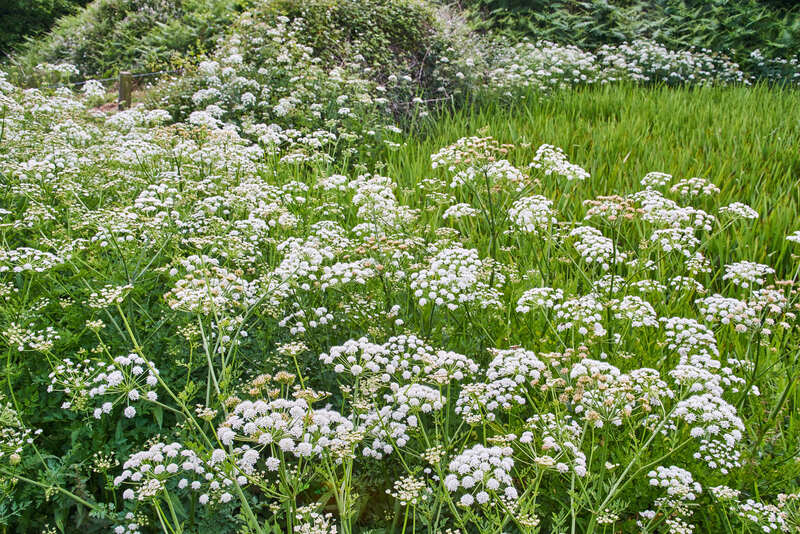Discover the Secret to Weed-Free Gardens with 3 Tips
Posted on 21/09/2025
Discover the Secret to Weed-Free Gardens with 3 Powerful Tips
Every gardener dreams of lush, beautiful flower beds and bountiful vegetable patches. However, nothing interrupts this dream quite like pesky, persistent weeds. Discovering the secret to weed-free gardens can seem like a mystery, but with the right approach, any gardener can achieve it. In this comprehensive article, you'll unlock the secrets to maintaining a weed-free garden with three essential tips designed for gardens of any size and type.

Why Is a Weed-Free Garden So Important?
Before diving into the best tips for a weed-free garden, it's important to understand why keeping weeds out is so crucial:
- Weeds compete for nutrients: Unwanted plants take away vital minerals, water, and sunlight from your desired blossoms and crops.
- Pest havens: Weeds often shelter garden pests and diseases, threatening the health of your plants.
- Aesthetic value: A weed-free landscape looks more appealing and organized, enhancing your enjoyment of your outdoor space.
Mastering the art of maintaining a garden without weeds not only supports the health of your plants but also boosts your garden's beauty and value.
Here are the 3 Secrets to Weed-Free Gardens
Ready to revolutionize your garden and say goodbye to weeds for good? Here's how:
Tip 1: Mulch Is Your Best Friend for a Weed-Free Garden
When it comes to keeping gardens free from weeds, mulching is the first and most significant secret weapon. Mulch acts as a natural barrier, making it incredibly difficult for unwanted seeds to germinate and reach sunlight.
- Suppresses Weed Growth: A thick layer of organic or inorganic mulch blocks sunlight, deterring weed seeds from sprouting.
- Maintains Moisture: By covering the soil, mulch helps your chosen plants retain moisture, leading to healthier growth and fewer spaces for weeds to invade.
- Improves Soil Quality: Organic mulches, such as bark chips or compost, decompose over time, enriching your soil while keeping weeds at bay.
Pro Tip: For the best weed-free results, apply a 2-3 inch layer of mulch after thoroughly weeding your beds. Focus especially on open areas where weeds tend to sprout the most.
Tip 2: Smother Weeds Before They Start with Proper Plant Spacing
Planting strategy can be your secret advantage against weeds. By thoughtfully planning your garden layout and choosing your plants wisely, you naturally choke out weeds before they become a problem.
- Crowd Out Unwanted Growth: When you plant your flowers and vegetables closer together, their leaves eventually shade the soil, depriving weeds of the sunlight they need.
- Leave No Bare Soil: Any patch of open earth is an invitation for weeds to move in. Use groundcovers or low-growing annuals to fill empty areas.
- Choose Fast-Growing Plants: Certain species, like marigolds or lettuce, establish quickly and form a living mulch, making it hard for weeds to take root.
Planning Tip: Draw up a garden plan ahead of planting season. Group plants by height and spread, ensuring the canopy will overlap. This strategy not only keeps gardens weed-free but also maximizes aesthetics and yield!
Tip 3: Stay Ahead with Regular, Easy Weed Removal
Even with perfect mulch and plant spacing, some weeds manage to sneak in. The real secret to a weed-free garden lies in persistence and timing:
- Early Intervention: Pull weeds as soon as you spot them--when they are small, roots are weak and easy to extract completely. The longer weeds grow, the deeper their roots become!
- Automatic Routine: Dedicate just a few minutes each week. Frequent, brief weedings are far easier than battling an infestation later.
- Right After Rain: Soil is looser and damp after rainfall, so weeds come out more easily and with less risk of breaking the root.
Removal Tip: Use a hand fork or a dedicated weeding tool for stubborn roots. Always collect pulled weeds and compost them if they haven't set seed.
Other Expert Tricks to Keep Your Garden Weed-Free
If you're serious about mastering a weed-free gardening technique, consider these expert insights:
- Install Landscape Fabric: For perennial beds or pathways, lay a breathable weed barrier fabric beneath mulch for double protection.
- Edge Your Beds: Keep lawn grasses and aggressive roots out by trenching or using physical edging around your plots.
- Avoid Disturbing the Soil: Dig only where you plan to grow. Soil disturbance brings up dormant weed seeds and encourages them to germinate.
- Plant Cover Crops: In the off-season, sow rye, clover, or other cover crops to blanket the soil and crowd out weeds naturally.
- Solarization: For severe weed problems, cover soil with clear plastic for 4-6 weeks in summer. The sun's heat will bake and kill weed seeds.
Incorporating just one or two of these methods can make a massive difference in your garden's weed-free status year after year.
Weed-Free Garden Maintenance Calendar
To keep gardens free from weeds all year, create and follow a simple seasonal routine:
- Early Spring: Remove debris, apply mulch, and fix any bare spots with new plantings.
- Early Summer: Weed regularly, top up mulch, check plant growth and spacing.
- Late Summer/Fall: Remove mature weeds before they set seeds, clear dead plants, add autumn mulch or sow cover crops.
- Winter: Plan next year's arrangements, order seeds, and rest while your weed barriers work for you!
This simple calendar ensures year-round success with a weed-free garden environment.

FAQs: The Secret to Weed-Free Gardens
How often should I mulch to keep weeds out?
Most gardeners find that applying fresh mulch at least once a year (typically in early spring or fall) maintains effective weed control. Replenish thin spots as needed.
Are there any natural homemade weed killers?
A mix of vinegar, salt, and dish soap, sprayed directly on leaves during sunny days, can help in controlling small outbreaks. However, always be cautious, as this can harm desired plants.
How do I deal with persistent perennial weeds?
Dig up the full root system, and never compost seed heads. For spreading weeds like bindweed or nutsedge, consistent removal and smothering with mulch are key.
What is the fastest way to clear a large, weedy area?
Solarization (using clear plastic and sunlight) and sheet mulching (layers of cardboard/newspaper topped with mulch) are effective ways to clear large patches and prevent future weeds.
Conclusion: Unlock the Secret to a Beautiful, Weed-Free Garden
With these three powerful garden weed-control tips -- mulching, strategic plant spacing, and regular removal -- you're well on your way to a thriving, weed-free oasis. Remember to supplement your main strategies with expert secrets for an even more robust defense.
By taking proactive steps and nurturing your garden with intention, you'll not only minimize weeds but also create happier, healthier plants. The real secret behind every lush, vibrant weed-free garden is perseverance, knowledge, and just a little bit of garden savvy.
Ready to transform your landscape? Embrace these strategies and discover the secret to weed-free gardens that attract admiration all season long!
- Choose quality mulch for lasting results.
- Plan your garden to maximize coverage and limit weed opportunities.
- Stay on top of any new seedlings with quick, regular visits.
With these weed-free garden secrets in hand, you'll spend less time weeding and more time enjoying the beauty and bounty you've cultivated. Happy gardening!
Latest Posts
The Art of Building a Playful and Safe Garden for Children
Discover the Secret to Weed-Free Gardens with 3 Tips
Ignite the Spark: Starting the Neglected Garden Overhaul

